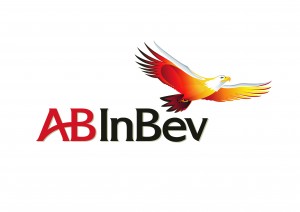
The group, which said it has studied direct store delivery (DSD) across multiple consumer categories for more than 20 years, published a report crediting much of craft beer’s success to the current independent three-tier system for beer distribution.
“As it turns out, subscale small brewers are also (unexpectedly) the beneficiaries of the advantages afforded major domestic brewers,” the report states. “The reason: they can leverage an effective route-to-market distribution system that was built by distributors and larger brewers over the decades. This open distribution system enables small brewers to avoid significant, if not prohibitive, costs to entry, while also gaining deep access to large and small retailers.”
The dialogue follows a string of discussions on the topic as heard at several industry conferences this year. At those events, craft brewers made a habit of voicing their concerns with the so-called franchise laws, which were originally enacted to protect independent wholesalers from losing the rights to sell brands marketed by large suppliers like Anheuser-Busch InBev and MillerCoors. Without the laws in place, those larger companies would be able to terminate a contract for arbitrary reasons and the resulting loss in revenue could potentially cripple a distributor’s business.
Yet, as the beer category has evolved, many craft brewers have argued that carve-outs for small breweries — which would give those businesses the ability to switch distributors — are not only necessary for further growth, but inevitable as the category matures.
“Most states are going to have franchise law carve outs,” Jim Koch, Boston Beer Co. founder and chairman, said at this month’s Beer Marketer’s Insights conference.
Koch, who prior to launching his brewing company, worked at BCG, might find himself in disagreement with current analysts at the firm.

The BCG report, published last week and penned by partner Neil Houghton and vice president Marin Gjaja, concludes that while success in the beer industry largely depends on consumer demand, the current open structure of the three-tier system has been a “fundamental enabler of growth in the craft beer segment.” Furthermore, the pair notes, the infrastructure built around independent beer distributors (who are protected by franchise laws) has enabled craft brewers to “piggyback” on a network “supported largely by the economics of large domestic and import brewers.”
In short, that means small brewers are able to avoid higher distribution costs and reach consumers in otherwise inaccessible markets.
Citing growth statistics from both the Brewers Association and National Beer Wholesalers Association, Houghton and Gjaja explain that changing consumer preferences have been the “main engine” driving the development of the craft category.
Nevertheless, Houghton and Gjaja recognized the value of an open distribution network.
“The ability of small brewers to gain access to the marketplace through independent distributors is a major reason that small brewers are able to exist at all,” they wrote. “Without independent distributors, most small brewers would have to cope with far less access to the market and consumers, and far lower growth rates.”
To make their case, Houghton and Gjaja applied BCG’s “proprietary DSD economic modeling approach” to the costs associated with delivering beer to chain grocery outlets.
“We estimated the costs for different types of breweries under today’s open distribution system,” the pair wrote. “Then we compared that result to what the costs would be if the distribution system were not open — that is, a system that restricted the types of products permitted on trucks to those produced or sanctioned by a major brewer.”

“Given the moderate margins of small brewers, this cost disadvantage would likely get passed through to the consumer — making many craft beers far more expensive and small breweries less competitive,” they wrote.
But here’s the kicker: Houghton and Gjaja, who contrasted the U.S. beer distribution system with supplier-manipulated DSD structures for other food and beverage categories, determined that franchise laws have actually benefited craft brewers and offered their support for keeping status quo.
“Regulators of the beer industry, which is one of the most highly regulated industries in the U.S., should recognize that the marketplace is working,” they wrote. “And they should be skeptical of complaints (legal and otherwise) that the marketplace favors only large players.”
